Text: Camila Plá
Photos: Esthel Vogrig
During the morning of February 20, in Amilcingo, Morelos, men and women arrived little by little to the Flores Velazquez family home, the majority with a bouquet of baby’s breath flowers beneath their arm, and as is custom in the region, a clay vase to put them in. With solemn faces, they sat down to listen to the priests and the seminarian who began the mass in honor of Samir Flores.
Meanwhile, Samir’s wife, Liliana Velázquez, ran from place to place without respite. Their daughters were with their friends and they entered the house to play. The neighbors greeted them with a quick handshake, and a hummingbird pecked at the flowers adorning the table where pictures of the deceased were displayed.
Tuesday, February 20, marked five years since the assassination of Samir. That day an armed group knocked on his door and shot him twice, changing his history, the history of his family, and of the entire community. Five years without justice.
While quite some time has passed, it also seems like it was just yesterday that he was walking through town, greeting the neighbors, and sharing news on the radio. In Amilcingo his presence is felt close, his name continues alive. His life and death mark the history of the community because Samir was assassinated for resisting the Morelos Integral Project (PIM), a megaproject of death that passes through the three states of Morelos, Puebla, and Tlaxcala, also passing through the community of Amilcingo.
The megaproject meant the construction of an aqueduct, a combined cycle thermoelectric plant, and a gas pipeline. The last of which passes through Samir’s home town. The three levels of government are implicated in the construction and imposition. Many of the early supporters of the megaproject continue serving in the current government, although the colors of the political parties have changed with the elections. The forms and discourses have changed with the different administrations, yet the people continue to resist the PIM.
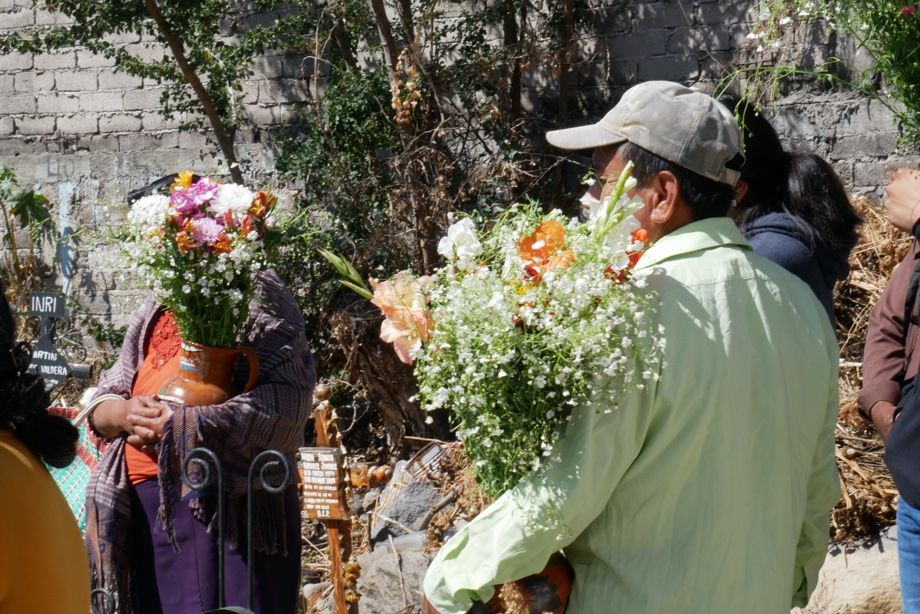
The priests who led the mass remember the history of Samir as one of struggle in defense of territory, land, campesinos, and water. And the PIM is a serious threat amidst the current water crisis through most of the country, especially in the center of the country where Amilcingo is located.
Residents of the community know very well the implications of megaprojects, and the PIM is not the first struggle that the community has carried out. It is the latest in a long history of popular organization. It goes back to the revolution when the inhabitants joined the Zapatista army, the Southern Division, to struggle for land and freedom. Elders in the community still recount the experiences of their mothers and fathers, maintaining the Zapatista memory alive.
Afterwards, many of the residents became jaramillistas and in the 70’s they organized for the autonomy of the communities against the large landholders of the municipality. This struggle resulted in the creation of the municipality of Temoac—the current municipality of the community—and led to the defense of the rural teacher training colleges, led by Vinh Flores Laureano, a teacher and political organizer.
Vinh was assassinated together with his two compañeros before the Normal Rural Emiliano Zapata of Amilcingo was founded, yet the people continue remembering him with love and pain. The street where Samir lived was even named after him. Curiously, Vinh was Samir’s uncle.
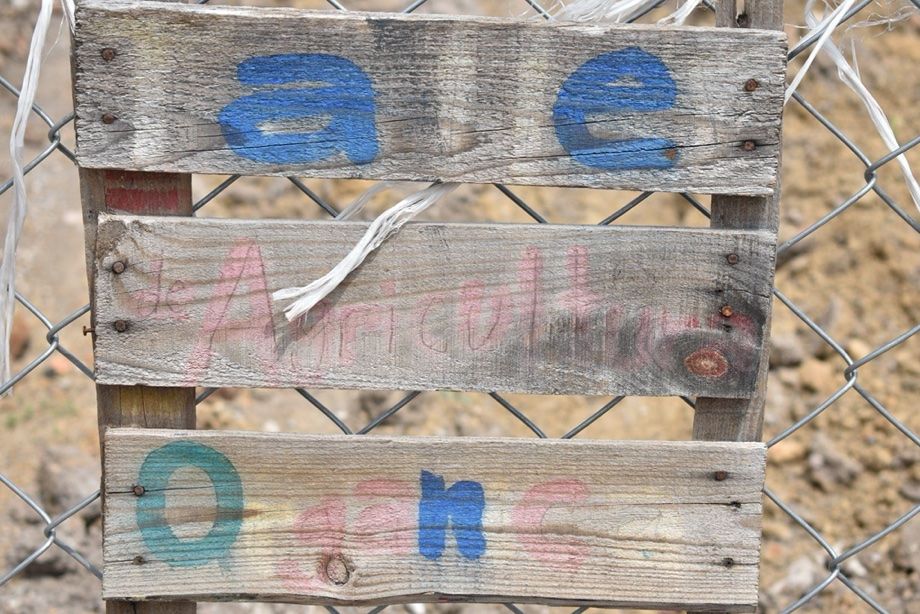
At the end of the mass, the people began a walk toward the cemetery of the community. The family and close friends of Samir led the walk. Children from the elementary school joined with signs and posters bearing the name of the person who years before has been their organic agriculture teacher.
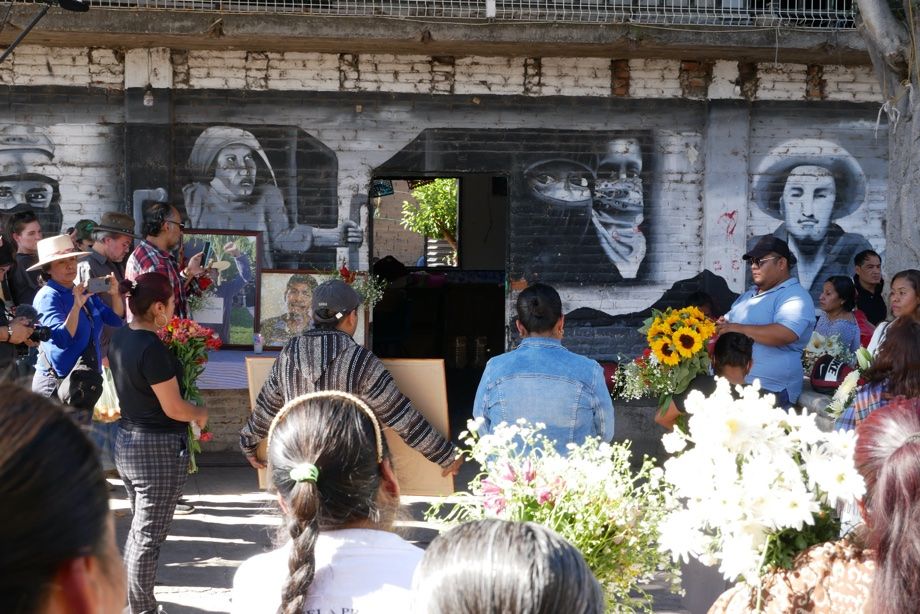
The first stop was in front of the community radio station where Samir was a DJ for two programs, and also the founder. In the radio station, the comparsa, a group with masks, was waiting to welcome the procession with guapachosa and protest music. The radio station is located in a family home who lent their space for the radio ten years ago. The wall that faces the street is painted with a mural of different faces from the popular struggle, among them Lucio Cabañas, Genaro Vázquez, Subcomandante Marcos, an Adelita, and now Samir Flores.
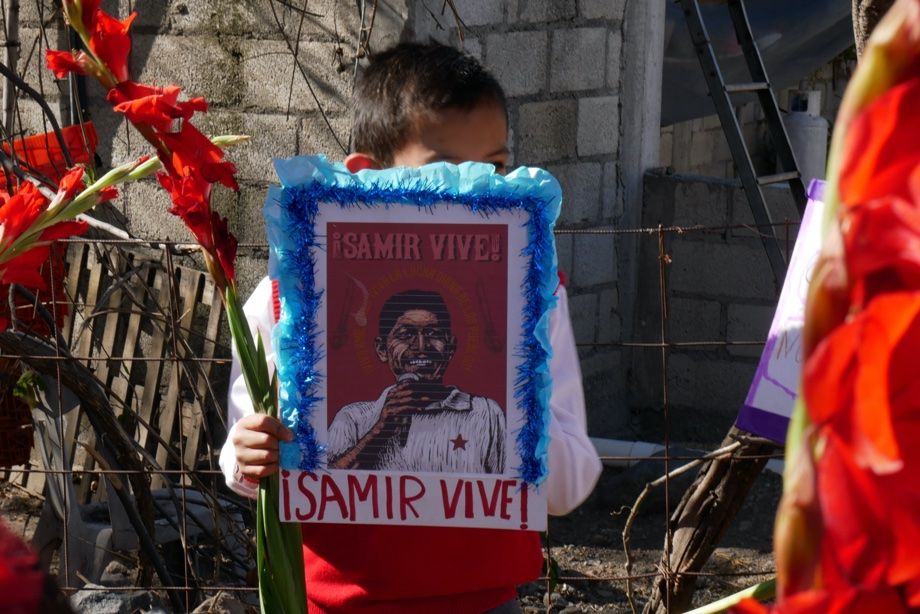
The second stop was the elementary school that now bears his name. The school exists because after the earthquake of September 19, 2017, the community prevented the state from demolishing the primary school, historically the only one in the community. The state’s intention was to close the school in order to divide the community and force them to relocate to another school constructed with funds from the gas pipeline company on the outskirts of the community.
For almost two years, the school lacked official recognition. However, the community organized to continue giving classes autonomously. It was then when Samir began as a teacher of organic agriculture. In March of 2019, the people obtained official recognition of the school and changed its name to the elementary school Samir Flores Soberanes. The director spoke of the life of Samir and those responsible for his assassination. After presentations from the children, the walk continued toward the cemetery where Samir current rests together with the ancestors of the community.
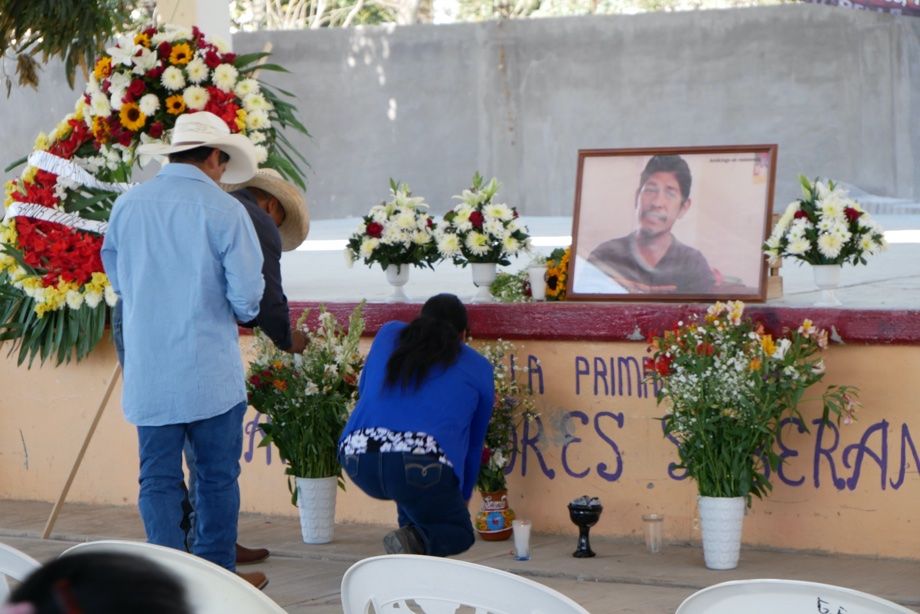
Since his assassination, Samir’s name has resounded in different geographies, crossing territories he didn’t know in life, being named and respected by people who he never met or knew. His name, life, and struggle are now a reference when talking about the defense of land and water. To remember his name and continue demanding justice is also an act of resistance against the war on Indigenous peoples.
During these five years, the memory has been indispensable for the inhabitants of Amilcingo. To remember is not only an act of resistance, but a tool for the construction of alternatives. It is from remembering of what was that one can glimpse and construct an alternative to the dispossession. Like Jorge Velázquez of the People’s Front explained: “We will continue resisting, we will continue with what our grandparents taught us.”
In your memory, compañero.


